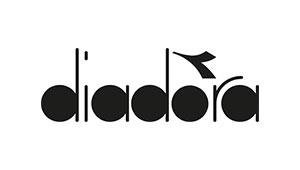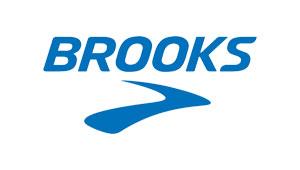
Construction
You can actually imagine someone assembling this shoe simply. The materials themselves range between a few different synthetics and a durable rubber around the toe.
The Lone Peak is similar to the New Balance 574 in that the upper is mostly constructed of cut and sewn materials; you won't find heat-molded overlays or anything too fancy here.
The mesh base is similar to the Instinct, but seems a bit more rugged. It cleans up well and feels extremely breathable. For cleaning, try sticking a leaf blower nozzle right into the shoe. This will efficiently blow all the dust and dirt right out of them. Since there are also no materials that would wick up moisture, these should stay dry and true-to-weight on your foot.
Weight
The Lone Peak is not a minimalist, lightweight shoe. It is more of a roomy, natural-runner friendly, zero-drop version of something like a Brooks Cascadia or a Montrail Mountain Masochist. It has a gnarly, protective outsole, a built-in rock plate, and durable upper materials. It just happens that you can run much closer to the way nature intended in the Lone Peak.
The Cascadia, for comparison, is 12.2 oz. versus the Lone Peak's 11.3 oz. Other similar offerings in the fully protective, cushioned trail runner category compare similarly in terms of weight. The North Face Singletrack and New Balance MT915 are also in the 11.1-11.3 oz. range. The Saucony Peregrine is a little lighter at just under 10 oz., but while protective it does not have a rock plate.
Fit
The fit of the Lone Peak is very typical for Altra, but unique for mainstream running shoes. It has a secure, comfortable heel cup, a deceivingly secure yet non-restrictive midfoot wrap, and a very "foot-shaped" roomy toe box (this is where Altra differs from most shoes). The result is a secure fit on the trail, and a comfortable fit in the long run. Like all zero-drop shoes, these put you up on your forefoot/midfoot.
The Lone Peak comes with a set of cushioned insoles labeled the "off-road" foot bed. These appear identical to the "support" foot bed in the Altra Adam and the Instinct. However, unlike the Instinct or Adam, the Lone Peak does not come with a second, flat pair of "strengthen" insoles.
The included "off-road" foot bed is cushioned, and has only a minimal arch curve. It provides no true support, but if you're used to barefoot or minimalist running, you may feel the arch curve when you wear these. If you are new to zero-drop or minimal shoes, you may find the out-of-the-box comfort and fit of the included insole familiar and comfortable.
Traction and Protection
The Lone Peak has a rugged, lugged outsole with a unique "tail" they call the "trail rudder." The rudder hangs off the back of the shoe and doesn't get in the way, but it does not have much of an effect on the shoe's performance. However, the rudder makes it is easier to kick these shoes off without using your hands, which can come in handy as a built-in boot pull when your shoes are wet or muddy.
The outsole itself is composed of a soft, sticky compound. It is a full-contact, flat outsole that maximizes surface contact with the trail. The toe area, as expected, is very wide and very stable. In that area, the Lone Peak has its largest collection of wide, deep lugs. Lugs are the deep rubber treads on the underside of the outsole to prevent slipping in off-road conditions. These ones are spaced well enough to shed mud but are frequent enough to secure your stance even on loose surfaces. They dig well on leafy, wet trails.
The shoe sole is decorated with footprints in yellow rubber. This adds a little fun to the shoe, and the yellow surface feels the same to the touch as the rest of the outsole. The Lone Peak also has an embedded rock plate to offer protection from the sharpest gravel, much like the other plated trail tanks identified in the weight discussion above.
You could put the Altra Lone Peak up against anything in the 11 to 13 oz. trail run category. While the Lone Peak weighs a good bit more than some trail racers, like the Montrail Rogue Racer or the New Balance MT101 (or upcoming 110), it offers tank protection with a minimal penalty.
For short races, you may prefer something lighter. However, in a trail marathon or a 50K, the Lone Peak can really deliver. Overall, you can expect a secure, protective, grippy tank of a trail shoe with the added benefit of being a zero-drop, foot-shaped product.
Altra is unique in their approach to shoe design. While this company does not invest in as much large-scale flash advertising as other competitors, they consistently make good shoes that are friendly to the runner and encourage a natural midfoot stride.
 Sign up for your next race.
Sign up for your next race.Zachary Branigan is an ultra runner who has used his events to raise thousands of dollars for cancer charities.
Get ACTIVE on the Go


Couch to 5K®
The best way to get new runners off the couch and across the finish line of their first 5K.
Available for iOS | Android







Discuss This Article